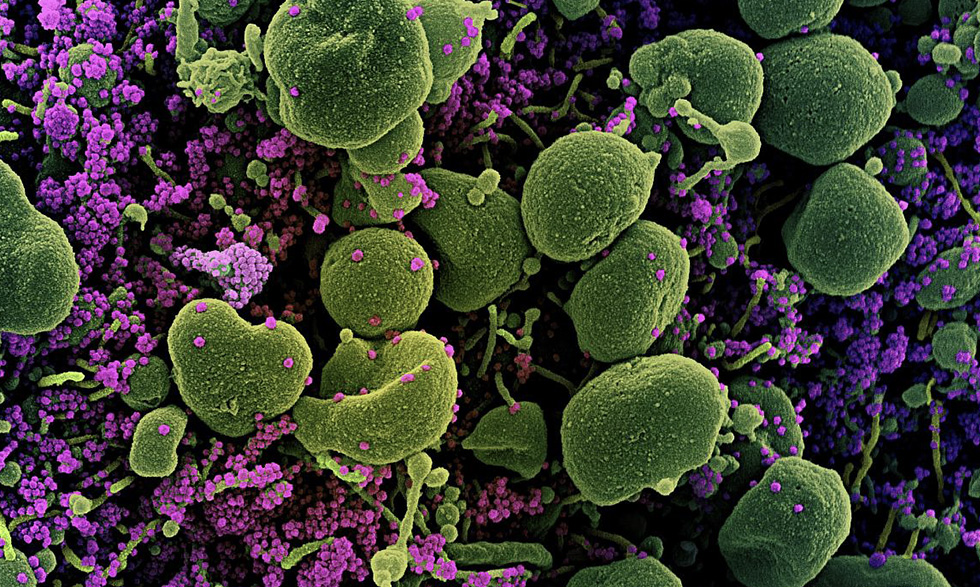
Early data from a small clinical study led by National Cancer Institute researchers found that a cancer medicine may help patients with trouble breathing caused by severe cases of COVID‑19.
Though the immune system is designed to help fight off disease, sometimes it can work too hard and actually cause damage instead. In some patients with severe COVID‑19, the immune system’s extreme response to the virus can impair the function of the lungs, causing serious problems with breathing. Treatment including extra oxygen and ventilators can help people with these severe cases breathe more easily and sometimes stay alive.
The medicine, acalabrutinib, is normally used to treat certain blood cancers. It works by blocking a protein that plays a key role in the body’s immune system. The study tested whether blocking that protein would help patients with severe COVID-19 breathe better.
The researchers found that the drug reduced an immune system overreaction to COVID‑19 and significantly improved breathing in the majority of treated patients.
A 10- to 14-day course of acalabrutinib was given to 19 participants in the study, including 11 who were receiving extra oxygen eight who were on ventilators. Within a few days of taking the medicine, most of the people in the extra oxygen group had reduced inflammation and improved breathing. Eight of those 11 patients no longer needed extra oxygen and were discharged from the hospital.
The benefits of the drug were less dramatic for the participants on ventilators. Four of the eight were able to be taken off the ventilator, and two were later discharged.
The findings should not be considered clinical advice, and acalabrutinib has not been formally approved as a treatment for COVID‑19. This strategy is now being tested in a randomized, controlled clinical trial to help understand the best and safest treatment options for patients with severe COVID‑19.
